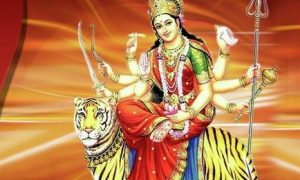History behind Holi Festival of india
Holi or Holika, also known as holikotsava, is a very popular event observed during the country (India). It is specially marked by unmixed gaiety and frolics and is general to all sections of the people.
This festival is extremely ancient. Known originally as ‘Holika’ it has been mentioned in very early spiritual works such as Jaimini’s Purvamimamsa-sutras and Kathaka-grhya-sutras. It must have as a result existed numerous centuries before Christ.
It was at first actually a particular rite performed by married women for the happiness and well-being of their families and the full moon (Raka) was the deity worshipped by them.
Present are two ways of reckoning a lunar month: Purnimanta and Amanta. In the former, the initial day starts after the full moon; and in the latter, behind the new moon. While the latter reckoning is more common now, the former was very much in vogue in the former days. According to this purnimanta reckoning, Phalguna purnima was the last day of the year and the New Year heralding the Vasanta-rtu (with spring starting from next day).
Therefore the full moon festival of Holika gradually became a festival of merrymaking, announcing the start of the spring season. This maybe explains the other names of this festival: Vasanta-Mahotsava and Kama-Mahotsava.
According to the stories in the Puranas and different local myths, this day is chief for three reasons.
• It was on this day that Lord Siva opened his third eye and reduced Kamadeva (the god of love, Cupid or Eros) to ashes.
• It was on this day that Holika, the sister of the demon king Hiranyakasyapu, who tried to kill the child devotee Prahlad by attractive him on her lap and sitting on a pyre of wood which was set ablaze. Holika was burnt to ashes while Prahlad remained unscathed!
• It was yet again on this day that an ogress called Dhundhi, who was troubling the children in the kingdom of Prthu (or Raghu) was complete to run away for life, by the shouts and pranks of the mischievous boys. While she had secured several boons that complete her almost invincible, this – noise, shouts, abuses and pranks of boys – was a chink in her armour due to a curse of Lord Siva. The day itself came to be called ‘Adada’ or ‘Holika’ since this festival is started.






.
Krishna tum radhaji or brijvasiyo ke sath holi khelto he govind aesa anmol mauka hame bhi do sanvariya taki ham aapke sath holi khel sake
Jai shri krishna aapke shri charno me aapka dulara shera ram parihar son of shri bodu ram parihar village kalesara teh. pisangan dis. ajmer
Very attractive website, I came here searching navratri but may be the article is removed.
here is page for navratri. http://www.shreesanwaliyaji.com/blog/category/navratri-special